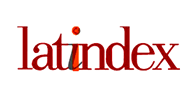How networks are changing the forms of the collective in cities
Social life collectivized by networks is organized in other ways
Keywords:
citizenship, information and communication, technologies, collaborationism sharingAbstract
The paper discusses the implications networks in the contemporary world in the light of new spaces of action. Social life collectivized by networks is organized in other ways. The study is considering a new vision of the concept of citizenship understood in a new team dynamic by analyzing the influence of networks reflected in the power of speech, thought and interconnection of social relations. The current set of these expressions of collective behavior defines the contours of our meaning of reconfiguration in various spheres of society: the representation spaces; in the way the collective relates within the cities; labor relations. Citizenship worked in the context of networks and in a culture increasingly mediated by virtual relationships brings a new kind of analytical framework giving us clues that citizenship is reconfiguring its bases leading to perceptions of a new social protagonist. Production of citizenship in the age of networks works under the sign of collaborative logic, sharing and self-narrative of representation. These new experiences make us wonder about the meaning of a still training citizenship setting up.
References
BAUMAN, Zygmunt. Comunidade: a busca por segurança no mundo atual. Rio de Janeiro: J. Zahar, 2003.
______. Globalização: as consequências humanas. Rio de Janeiro: J. Zahar, 1999.
CASTELLS, Manuel. A galáxia da internet: reflexões sobre a internet, os negócios e a sociedade. Trad. Maria Luiza X. de A. Borges. Rio de Janeiro: J. Zahar, 2003. Tradução de: The internet galaxy: reflections on the internet, business and society.
CASTELLS, Manuel. Redes de indignação e esperança: movimentos sociais na era da internet. Rio de Janeiro: J. Zahar, 2013.
DELEUZE, Gilles. Post-scriptum sobre as sociedades de controle. In: ______. Conversações: 1972-1990. Tradução de Peter Pál Pelbart. São Paulo: 34, 1992. p. 219-226. (Coleção TRANS).
DELEUZE, Gilles; GUATTARI, Félix. Mil platôs: capitalismo e esquizofrenia 2. São Paulo: 34, 1995. v. 2. (Coleção TRANS).
FOUCAULT, Michel. Em defesa da sociedade: curso no Collège de France (1975-1976). 2. ed. São Paulo: Martins Fontes, 2010.
______. Vigiar e punir: história da violência nas prisões. 41. ed. Petrópolis: Vozes, 2013.
HABERMAS, Jürgen. O Estado-nação europeu frente aos desafios da globalização: o passado e o futuro da soberania e da cidadania. Novos Estudos, n. 43, p. 87-101, nov. 1995.
______. A inclusão do outro: estudos de teoria política. São Paulo: Loyola, 1996.
SIBILIA, Paula. A construção de si como um personagem real: autenticidade intimista e declínio da ficção na cultura contemporânea. Revista ECO Pós, Rio de Janeiro, v. 15, n. 3, p. 22-46, 2012.
______. Redes ou paredes: a escola em tempos de dispersão. Rio de Janeiro: Contraponto, 2012.
STANDING, Guy. O precariado: a nova classe perigosa. Belo Horizonte: Autêntica, 2013. (Invenções democráticas, v. 4).
TOURAINE, Alain. Crítica da modernidade. 10. ed. Petrópolis: Vozes, 2012.
______. Um novo paradigma: para compreender o mundo de hoje. 4. ed. Petrópolis: Vozes, 2011.
Downloads
Published
How to Cite
Issue
Section
License
Copyright (c) 2022 Revista da EMERJ

This work is licensed under a Creative Commons Attribution 4.0 International License.
Authors who publish in this Journal agree to the following terms:
- Authors retain copyright and grant the Journal of Constitutional Research the right of first publication with the article simultaneously licensed under the Creative Commons - Attribution 4.0 International which allows sharing the work with recognition of the authors and its initial publication in this Journal.
- Authors are able to take on additional contracts separately, for non-exclusive distribution of the version of the paper published in this Journal (eg.: publishing in institutional repository or as a book), with a recognition of its initial publication in this Journal.
- Authors are allowed and encouraged to publish their work online (eg.: in institutional repositories or on their personal website) at any point before or during the submission process, as it can lead to productive exchanges, as well as increase the impact and the citation of the published work (see the Effect of Open Access).


















